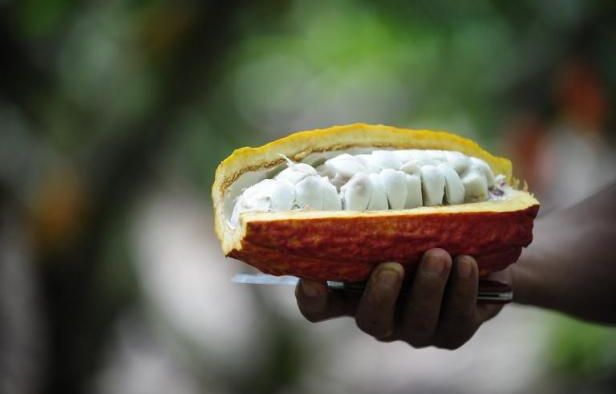In Brazil, cocoa pulp jelly is in every home! With its sweet and fruity taste, Brazilians love it, spread on a tapioca, a cassava starch pancake, or on fubà, a cake made with corn flour.
At Dengo, a Brazilian brand that landed in Paris three months ago, with its first international store, the flagship product for the summer is “geleia de cacau” (cocoa jelly). The product seduces tourists and French people looking for new flavors, in a country that loves jam.
A fruity and tangy taste
Made from the pearly “flesh” surrounding the beans of cocoa trees, called mucilage, the cocoa pulp jelly follows an “artisanal and tedious process” to arrive in its airtight jar, as Charles Znaty, the European founder of Dengo. Cocoa producers in Brazil must open the pod (the fruit of the cocoa tree) of several fruits, to recover the mucilage, a kind of white pulp that surrounds the beans, by passing it through a sieve to remove the seeds. This pulp naturally has a fruity and tangy taste, which is found in the jelly afterwards, and which therefore has nothing to do with the taste of cocoa. Mucilage is of increasing interest to professionals in the cocoa sector to enhance the various products derived from the bean. The chocolate maker Valrhona, which has just opened its first point of sale intended for the general public in Paris, offers cold drinks made from Oabika, a concentrate of this cocoa pulp, concocted by the world champion in mixology Victor Delpierre.
Ideal for summer, the cocoa pulp jelly expresses aromas reminiscent of passion fruit and pineapple. “In Brazil, we eat savory in the morning and reserve the jelly for the afternoon, as a snack with a coffee. But for French fans of sweet breakfasts, it is perfect for the morning, on fresh bread, brioche or in natural yoghurt! I put a little on my fruit and I add Brazil nuts with it,” says Andressa, one of the Brazilian managers of the Dengo store. From a nutritional point of view, the caloric intake is equivalent to that of a jam, around 200 calories per 100 grams. The product can also be incorporated into savory dishes, for a fresh and sweet touch, and can be kept cool after opening for at least 30 days.

